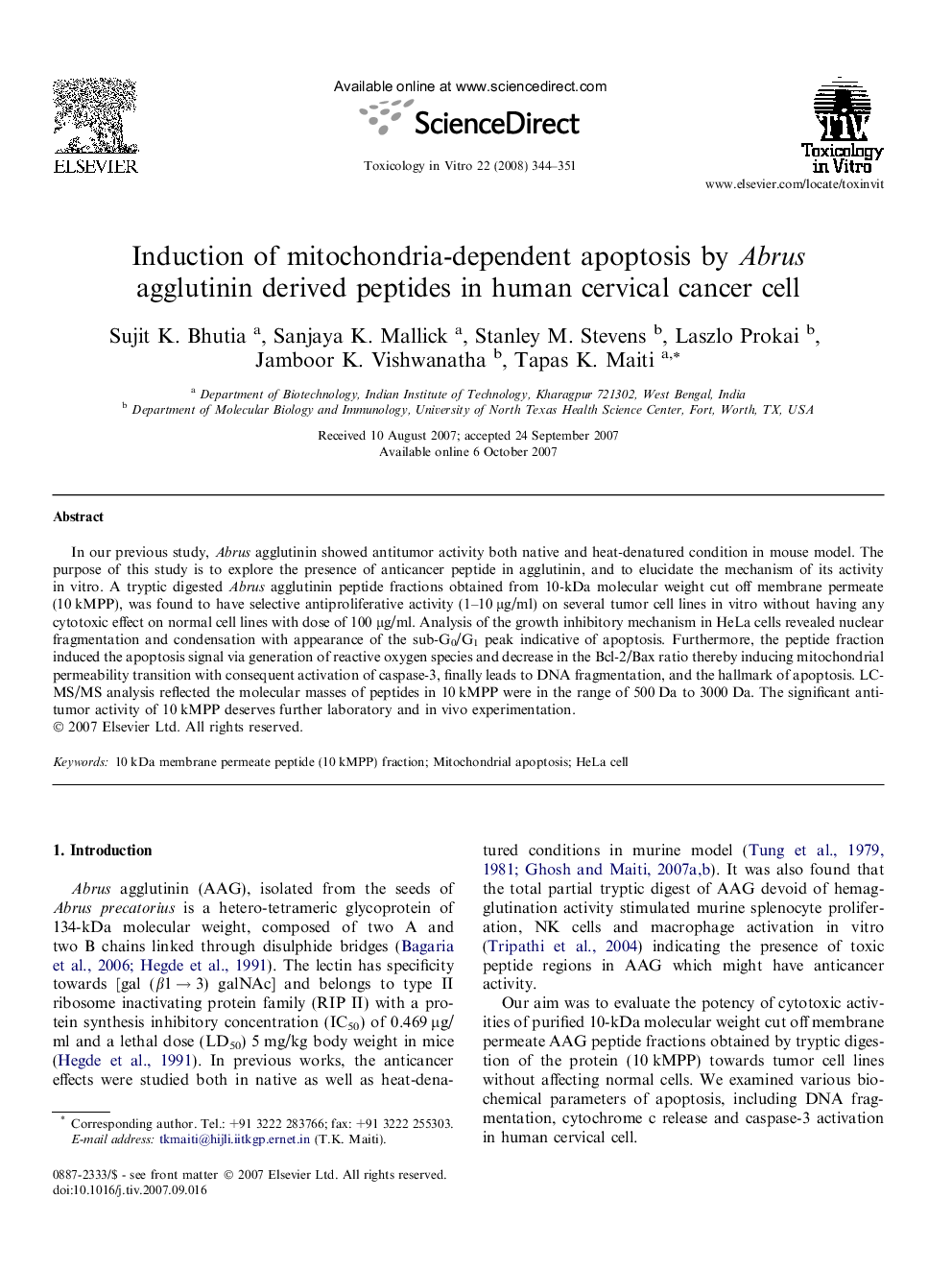| Article ID | Journal | Published Year | Pages | File Type |
|---|---|---|---|---|
| 2603492 | Toxicology in Vitro | 2008 | 8 Pages |
In our previous study, Abrus agglutinin showed antitumor activity both native and heat-denatured condition in mouse model. The purpose of this study is to explore the presence of anticancer peptide in agglutinin, and to elucidate the mechanism of its activity in vitro. A tryptic digested Abrus agglutinin peptide fractions obtained from 10-kDa molecular weight cut off membrane permeate (10 kMPP), was found to have selective antiproliferative activity (1–10 μg/ml) on several tumor cell lines in vitro without having any cytotoxic effect on normal cell lines with dose of 100 μg/ml. Analysis of the growth inhibitory mechanism in HeLa cells revealed nuclear fragmentation and condensation with appearance of the sub-G0/G1 peak indicative of apoptosis. Furthermore, the peptide fraction induced the apoptosis signal via generation of reactive oxygen species and decrease in the Bcl-2/Bax ratio thereby inducing mitochondrial permeability transition with consequent activation of caspase-3, finally leads to DNA fragmentation, and the hallmark of apoptosis. LC-MS/MS analysis reflected the molecular masses of peptides in 10 kMPP were in the range of 500 Da to 3000 Da. The significant antitumor activity of 10 kMPP deserves further laboratory and in vivo experimentation.
